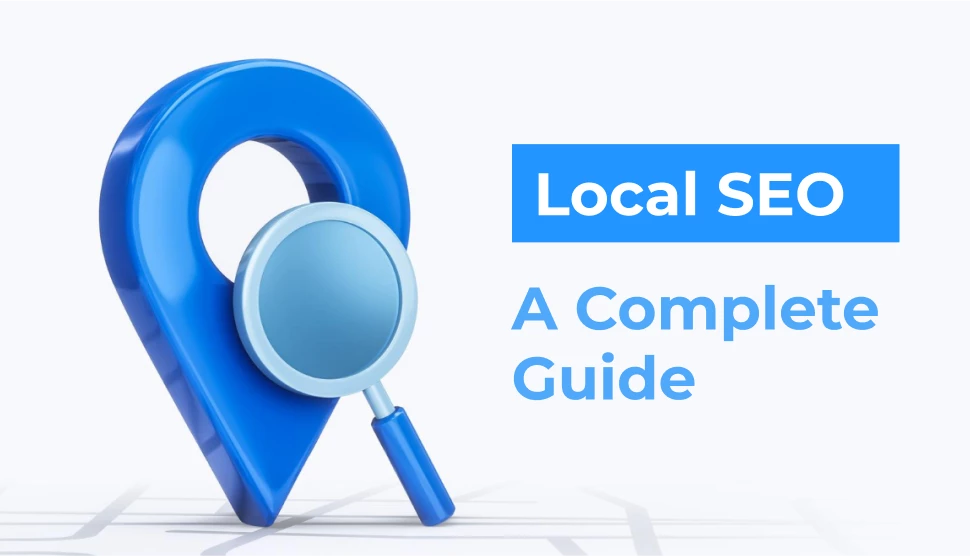Decoding Keyword Difficulty and Mastering Your Ranking Potential
4 mins | Dec 28, 2022

While performing keyword research, one of the essential questions that is asked is how tough it can be for the keyword to rank on search engine results that could result in organic traffic.
Tragically, the majority of online marketers tend to make the common mistake of concentrating solely on search volume as a technique of prioritizing efforts.
If you neglect to consider other keywords, then you might end up discovering results that are disappointing and with extremely low traffic.
So, what is the solution here? Well, there is a solution, indeed an intelligent technique that revolves around the notion of utilizing keyword difficulty on the edge of search volume that equalizes the comfort of ranking.
In this article today, we will discuss how you can calculate keyword difficulty and understand the potential of your website to rank for a specific keyword.
What Is Meant By Keyword Difficulty?
To be detail-oriented, keyword difficulty must be referred to as keyword ranking difficulty. The metric helps in measuring how hard it is to lift the ranking ladder on search engines when aiming for a particular keyword. Some people also call it SEO difficulty.
Well, it doesn't matter what you name it; the advantages are pretty obvious. Obtaining the difficulty level enables you to estimate the effort it puts up to obtain a decent ranking on search engine results pages. This allows you to refine your keyword method, agenda time, and resources more meticulously.
Different types of keyword & SEO tools tend to apply distinct methodologies of measuring keyword difficulty. Some of them show number figures while others display percentages. Practically, the amount and quality of backlinks to the ultimate ranking websites for the keyword is the fundamental characteristic of all the tools!
Why Focusing On Keyword Difficulty Is Extremely Important?
To make your website rank higher in the search engines, you will have to measure the capabilities of your competitors, the interests & needs of your audiences, market trends, etc. This is why keyword research is conducted in the first place.
The keyword difficulty metric pays attention to the preferences of your audiences and competition to notify how tough it is to accomplish that objective. It assists you in examining your opportunities and analyzing how much hard work you will have to put in to achieve your desired or preferred SEO rank.
A keyword that comes with a low difficulty score is quite easy to obtain a high ranking. Also, you don't have to put in a lot of resources, and you can anticipate results fairly soon. When you aim for a keyword with expanded difficulty, you are required to create a plan for greater explicitness in your targeting, additional content pieces, links, etc.
Now let's move on to the next part, where we have explained the factors that contribute to the ranking difficulty of a keyword.
3 Factors That Contribute To The Ranking Difficulty Of A Keyword
Determining the keyword difficulty score with a keyword rank checker is not at all enough to specify how your webpage will rank in the SERPs. Virtually, three important factors must be taken into consideration; they are as follows:
➜ The Authority of The Domain
A newly developed domain will have to struggle to rank for competitive keywords in the first place. Building up authority takes a lot of time, such as nearly up to six to twelve months, so that a presence can be established and starts to demonstrate an ROI.
Like the keyword rank checker tools, some tools can be utilized to measure the domain authority score, which is popularly known as the domain authority checker. This score is usually used to assess the webpage's or domain's overall quality. Several factors are involved in building up a domain's authority, which can be utilized as a criterion in ascertaining keyword difficulty.
Comparing the domain with others that rank higher in the search engine results is recommended. But if the authority score is shown generously better than yours, then there are high possibilities that you will strive to rank until you sweat hard on augmenting your prominence. Now, the question is, what helps in increasing the domain authority? It's the content and backlinks quality! You guessed it right!
➜ The Content Quality
In the absence of quality content, it is said to be impossible to rank at a higher position on search engines. Google states that only reliable and relevant information can be available to online users. This says how significant the quality of the content is in the ranking sport!
However, if you want to rank higher on search engine results, you have to produce content that is up to the mark and is at least as excellent as what is already given online. Still, if you strive to rank higher, then the content quality should outweigh the quality of all other work presented on the web.
➜ The Backlinks Quality
One of the most important factors that help in ranking high on the search engine results page is none other than — Backlinks. Similar to the quality of the content, the quality of the backlinks is extremely important. If the quality of the backlinks is great, then it helps you rank high on search engines and builds your domain authority. Having a wise link-building policy yourself, you can quickly accomplish notable page visibility on SERPs.
Summing It Up
When it comes to keyword ranking, it must be coupled with several other important metrics to help you achieve the marketing performance you desire. There are some amazing tools to take it to the next level in this digital world.
But, one thing you should remember is that you will have to put in congenial efforts and elevate your strategies as and when needed. To achieve a higher position on the search engine result pages, you will have to get extra aware & conscious and lay your hands on credible data from pre-eminent sources.
You might find a lot of keyword rank tracker tools over the web, but each one is unreliable and cannot be trusted to provide precise results. Choosing an advanced keyword checker will never dishearten you and also assist you in figuring out the present situation of any keyword on search results.
As stated above, apart from checking keyword ranking, you also must ensure that the other factors determine how hard it would be for a webpage to attain a standpoint on search results. Thus, you must go deep into numerous factors and keep tracing the ranking with a credible keyword position checker!
Author







